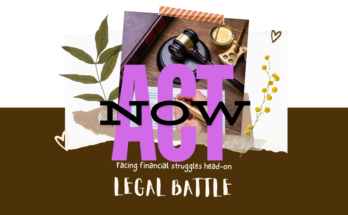Starting your journey in Forex trading can feel like navigating uncharted waters. With the promise of financial growth and the thrill of the market, it’s no wonder so many are drawn to it. However, before you can begin trading, it’s essential to set up a solid foundation, starting with your Forex trading account. This guide will walk you through the necessary steps, ensuring that you’re well-prepared to dive into the world of Forex trading with confidence and clarity.
Developing Your Trading Style
After mastering the basics of the Forex market, you can begin honing your Trading Style and Skills as you gain more experience. Understanding key concepts and tools prepares you to navigate the Forex market successfully. Choosing a broker and setting up your account are crucial decisions that will impact on your profitability. Failing to choose wisely can cut short your journey.
Setting Up Your Trading Account
Setting up your trading account is one of the important first steps to begin your Forex trading journey. When done right, it can help mitigate risks in the currency market. We will guide you through setting up your account to make the process easy and safe.
Choosing a Reputable Forex Broker
Deciding on the right Forex Broker is very important. Unfortunately, due to the decentralized nature of the Forex market, there are many fraudulent brokers who aim to transfer your trading capital into their accounts.
They sometimes use slippage, large bid and ask (called spread), stop loss chasing, and some brokers outrightly trade against their customers’ positions. It is important to check their customer reviews, compliance, and customer service. Choosing a broker with low fees and easy-to-use platform can help improve your trading skills and shorten your learning curve.
Account Types
Forex Brokers offer several types of accounts to meet traders’ various needs. You can find Standard Accounts, Mini Accounts, Micro Accounts, and Demo Accounts. Standard accounts are suitable for those who know how to trade well and are willing to put in more trading capital. Mini accounts and Micro accounts are for beginners with lower starting capital. Demo accounts let you practice Forex trading without using real money. Pick the one that matches your goals and your risk tolerance.
Necessary Documentation
Setting up an account requires some paperwork to comply with the law. You will need an official ID, like a passport or driver’s license, and occasionally a document showing your address, such as a utility bill. The broker will specify exactly what you need to open a Forex account, and the requirements may vary slightly depending on your location.
| Key Points: |
|---|
| Choose a reputable Forex broker that offers competitive spreads and a user-friendly trading platform. |
| Select an account type based on your experience level and trading goals. |
| Prepare the necessary documentation, such as proof of identity and address, to comply with regulatory requirements. |
After selecting a reliable broker, choosing your account type, and gathering your documents, you’re ready to create your trading account. In Part III, we will explore how to manage risks in Forex trading in greater detail.
conclusion
Setting up your Forex trading account is the first step towards becoming an active participant in the global financial markets. By following the steps outlined in this guide, you can ensure that your account is not only ready for trading but also optimized for your success. With your account in place, you’re now equipped to explore strategies, make informed decisions, and start your journey towards financial growth in the exciting world of Forex trading.
Fair Use Statement
All materials used in this work, including videos and pictures, have been referenced according to the Fair Use Act. This act allows the use of copyrighted material without permission from the copyright owner under specific conditions such as criticism, comment, news reporting, teaching, scholarship, or research.
The use of these materials is transformative, adding new meaning and value, and is not intended to compete with the original works. By referencing and analyzing these materials, we aim to provide educational content and enhance understanding for the audience.
For more information on the Fair Use Act, please refer to Title 17, Section 107 of the United States Code.
Disclaimer:
The topics discussed in this blog are for educational and informational purposes only. They do not constitute formal advice to act upon in any way. Readers should consult with a qualified professional before making any decisions or taking any actions based on the information provided. The author and the blog are not liable for any consequences resulting from the use or reliance on the information presented.




